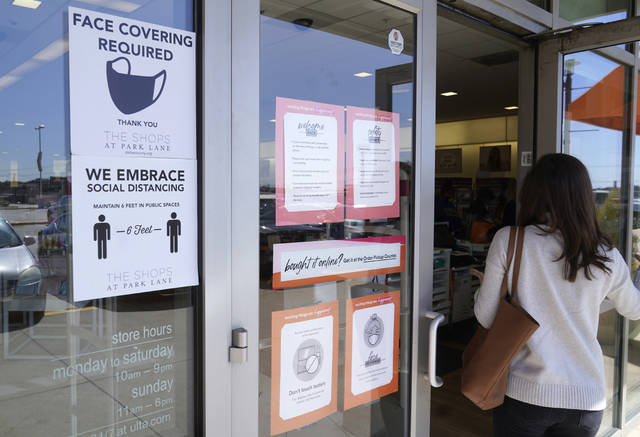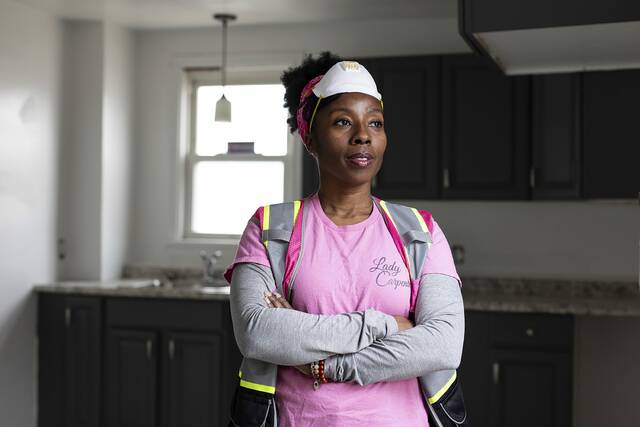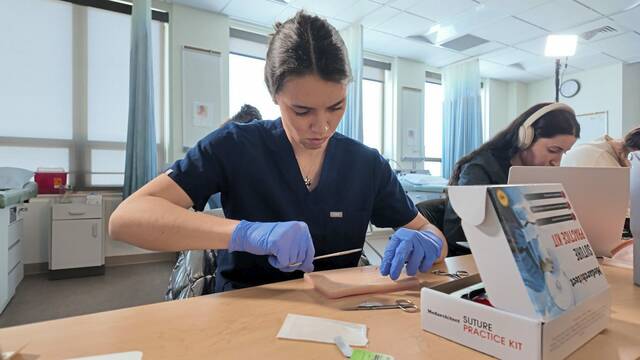As expected, the Centers for Disease Control and Prevention is now recommending that even vaccinated people wear masks indoors in parts of the U.S. where coronavirus cases are surging.
The CDC made the announcement Tuesday, adding vaccinated people with vulnerable household members, including young children and those who are immunocompromised, wear masks indoors in public spaces.
Gov. Tom Wolf said ahead of the CDC announcement that he was not considering another statewide mask mandate — especially with current hospitalization rates remaining relatively low in Pennsylvania.
“I don’t mean to be cavalier about it, but our strategy here in Pennsylvania has been the vaccine and that has worked,” Wolf said. “And I think the numbers nationally show it has worked. If you want to protect yourself or your family against covid, get the vaccine.”
Some area health experts, including Dr. Donald Whiting, Allegheny Health Network’s chief medical officer, agree with the governor.
“I think he’s right. I think Pennsylvania has really elevated the game as far as vaccination in the state,” Whiting said Tuesday. “The CDC is making their best available information recommendation, and then it’s up to the states to make their determination on what they need to do.”
For its part, Allegheny County is adopting a similar stance to Wolf’s.
“This does not apply at this time to Allegheny County, where rates are ‘moderate,’ ” said Allegheny County Health Department spokesman Chris Togneri.
He said Dr. Debra Bogen, director of county’s health department, “has consistently said that we must follow CDC recommendations on masking and other mitigation efforts to combat the virus and variants. That includes getting all eligible people vaccinated as soon as possible.”
Whiting said he understands the CDC’s revised recommendations.
“I think we always need to do what we can to prevent the spread of the disease,” he said. “And given the fact that there is a high percentage of unvaccinated people in the country, and there is an increasing number of covid cases, we need to introduce some ways to mitigate that spread. And this is a good way to do it.”
Pittsburgh-based infectious disease expert Dr. Amesh Adalja, a senior scholar at the John Hopkins Center for Health Security, said he doesn’t see much point in having fully vaccinated individuals wearing masks.
“They’re not driving transmission. At best it would be a very small amount of transmission in certain individuals, but that doesn’t seem to be very common,” he said. “What I worry about is that this is going to create more vaccine hesitancy because people see masks coming back even if you’re vaccinated in certain areas where there’s high prevalence of infection.
“What we wanted vaccines to do is show how life would be post-pandemic, how the vaccine is of individual value to you. This will be seen as a setback to many people.”
Adalja said masks are a paltry substitute for vaccines, and he doesn’t think the new CDC recommendation will lead to a decrease in transmission.
“The people we want to wear the masks, people in places like Missouri or Florida, they’re still not going to wear them.”
A supporter of masks indoors
However, Dr. Seema Lakdawala of the University of Pittsburgh School of Medicine said she is in favor of the new CDC mask measures.
“It’s important to consider that this pandemic isn’t over. I know we’re tired. I’m tired,” she said. “In Allegheny County, we have about 50% to 60% of individuals who are fully vaccinated. We’re doing really well.
“But the virus hasn’t stopped spreading. When you think about vaccination rates, (some other states) are at 40%, we’re at 50% to 60%. Is that sufficient? I wear a mask indoors even though I’m fully vaccinated. If I go to the grocery story, I wear a mask.
“As long as the virus is transmitting and spreading, it’s going to evolve. That’s what viruses do,” Lakdawala said.
Efforts to reach representatives of Excela Health were unsuccessful.
For those worried that the new CDC recommendations mean society will soon be shutting down again, Whiting says not to worry.
“I don’t think we’re ever going back to that. I think this is just sort of a mitigation recommendation in areas where they are having big issues,” he said. “In Western Pennsylvania, we’re certainly in better shape than Florida and other places that are much less vaccinated.”








